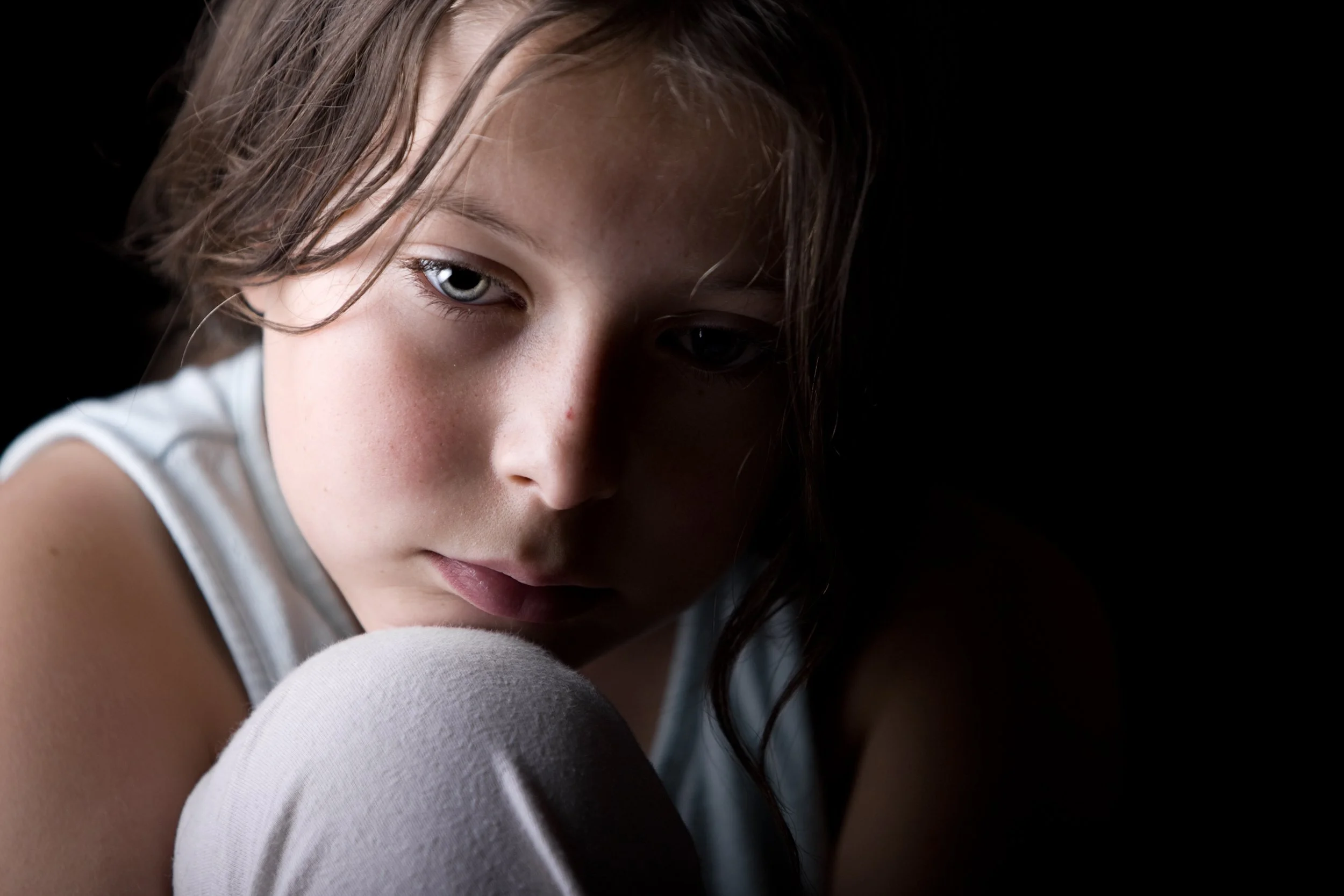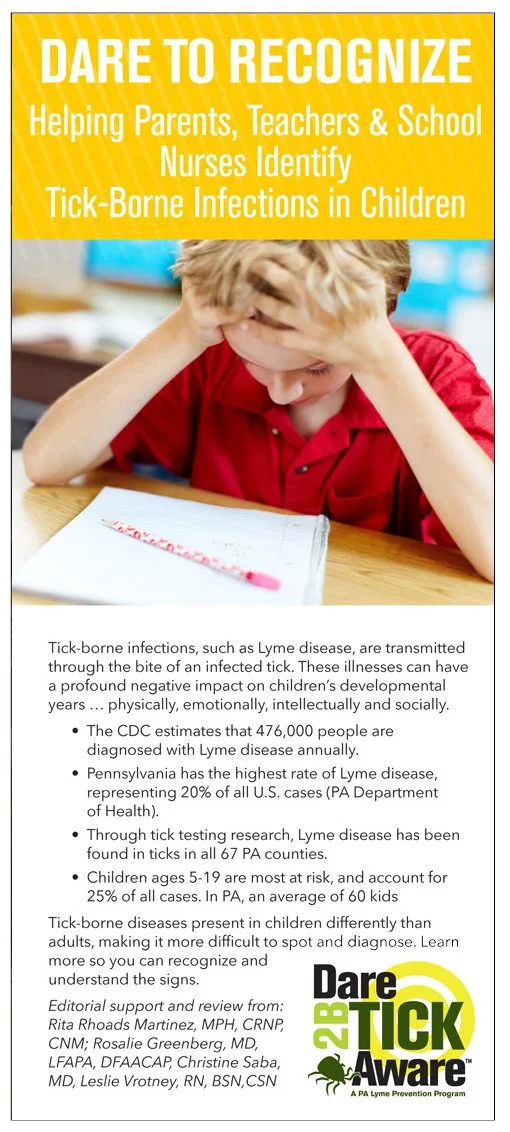
Children & Tick-Borne Infections
What’s At Risk? Children’s Physical, Emotional, Intellectual
& Social Development.
Tick-borne infections, such as Lyme disease, present differently in children than adults, making it more difficult to spot and diagnose. These illnesses can have a profound negative impact on every aspect of a child’s life … physically, emotionally, intellectually and socially. Children ages 5-14 are most at risk, and account for 25% of all cases (in Pennsylvania, that’s an average of 60 kids per day).
Due to their illness, children often miss out on school, sports, activities and time with friends. They not only fall behind academically, but the isolation can lead to depression and anxiety. Long-term implications include debilitating chronic illness with a range of musculoskeletal, cognitive, and neuropsychiatric impairments. Early identification, diagnosis and treatment are important to their future health.
Would You Recognize Tick-Borne Illness in Your Child?
PA Lyme is pleased to share our latest brochure in our Dare series … Dare to Recognize! This brochure will be an invaluable tool for parents, teachers and school nurses to more easily recognize tick-borne diseases in children and teens. Download the brochure now!
Identifying & Understanding the Symptoms
The nature and progression of tick-borne diseases can be puzzling. A child may not appear to be sick in the traditional sense, but experience symptoms that come and go, in type and severity, or migrate around the body. Many children also may have a hard time explaining why they don’t feel well. For preteens and teenagers, the surge of hormones as they get older complicates things even more. In fact, when children enter puberty, tick-borne diseases can flare and exacerbate previous symptoms and create a new onset of symptoms. Symptoms may include:
Severe fatigue
ADD/ADHD
Neuropsychiatric problems
Decreased attention span
Difficulty thinking
Expressing, reading, writing and making decisions
Tick-borne illness should be considered when unusual changes in behavior or academic performance occur with a child. A Columbia University study on children with Lyme disease found some children had a 22-point drop in IQ. Symptoms may be more apparent with a child who previously had performed well in school. Every child with Lyme or tick-borne illnesses has a unique profile of symptoms, which can vary significantly during the process of infection.
It is critical to get tick-borne infections diagnosed early. A delayed diagnosis and delay in treatment can contribute to more severe and prolonged illnesses.
Visit these sites for additional information:
• Psychiatric Lyme, What Every Mental Health Specialist Should Know About Lyme and Tick-Borne Illness
• Diagnosing Lyme Disease in Children With Neuropsychiatric Illness
Uncharacteristic emotional outbursts
Confusion
Tics
Insomnia
Nightmares
Psychological Aspects of Lyme Disease and Tick-Borne Diseases
This video, originally created for the PSEA (Pennsylvania State Education Association), provides an excellent discussion on the psychological aspects of Lyme Disease and other tick-borne diseases. This educational video is ideal for school nurses, doctors, parents, and anyone who wants to learn more about the psychological components of Lyme Disease (particularly in children).
Stay tuned to this page – more comprehensive information for children coming soon!



